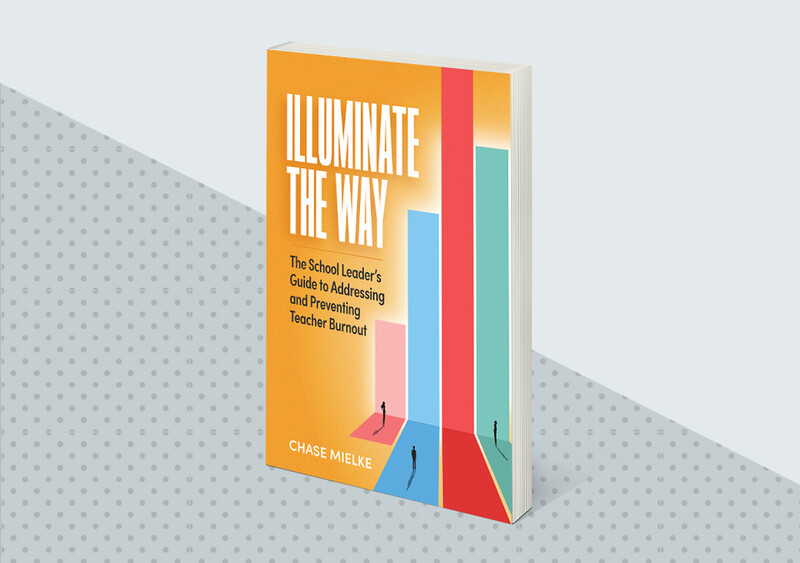I recently heard a superintendent share a quote with his staff: “Maybe your path is harder because your calling is higher.” It’s one of many pithy sayings meant to reframe educators’ perception of their work. Meaningful endeavors, like teaching and school leadership, may never feel easy. But viewing our work as a “calling” can set us up for disappointment if our expectations don’t meet reality. How do we assess whether our calling is a noble odyssey or a siren’s song sending us to mental shipwreck?
Curious, I posted a poll to my Instagram account, asking followers to agree or disagree with the statement “It’s unhealthy to consider your work a calling.” One in four respondents (mostly educators) agreed with the statement. A majority disagreed. The way I see it, though, the truth lies somewhere in the middle: Finding work as a calling has its benefits and pitfalls.
Why We Should Pick Up the Calling
As an elder Millennial, I grew up in a generation bathed in encouragement: “You can be anything!” “Love what you do and you’ll never work a day in your life!” Without a doubt, there is ample research showing that finding work meaningful can be positive for our well-being. In a seminal study on how individuals orient their meaning with their work, Wrzesniewski and colleagues (1997) found that those who consider their work to be a “calling” (versus a “job”) often report greater self-esteem, work engagement, job satisfaction, and even attendance.
Finding work as a calling has its benefits and pitfalls.
So yes, we should endeavor to pursue meaningful work. But less popular (and less likely to be quoted at staff meetings) is the reality that focusing on work as a source of meaning, taken too far, can have a negative impact on our well-being.
When the Calling Is a Scam
Despite the benefits, it’s possible to have an unhealthy attachment to our calling—setting us up for worse psychological outcomes, like workaholism, psychological distress, work-family conflict, and being taken advantage of by employers (Choi et al., 2020). For example, the concept of educators being “in it for the outcomes, not the income” emphasizes purposeful work, yet dismisses the need for adequate pay.
Another challenge: The missed calling. What if your work doesn’t help you answer or fulfill the ideals of your calling? Individuals who have an unanswered call (i.e., their ideals of purposeful work aren’t actualized) can have worse psychological and physical outcomes compared to even those who have no sense of calling (Gazica & Spector, 2015). If we remain too fixed to an ideal of purpose, I’ve noticed, the reality of the work may disappoint, leading us to be more cynical of our organization or self-deprecating of our ability to make an impact.
Redialing Our Calling
We need to find a healthy balance: Seeking meaning in our work as educators, while also being aware of the potential pitfalls. We can establish a healthier pursuit of purpose in a couple ways.
1. Self-Reflect
Take time to reflect on the effects of viewing work as a calling. Freewrite on the following prompts (or discuss them with a trusted friend or colleague):
To what extent am I able to “turn off” or “detach” from thoughts about work when I am in other contexts (with family, doing hobbies, etc.)?
When I don’t meet work goals or have difficult moments on the job, how much does it impact my self-esteem?
In what ways do I seek a sense of identity and self-esteem from activities beyond my work?
Your responses can reveal whether you have what psychologists call “obsessive passion” or “harmonious passion.” For example, if you have a rough day with your class but don’t ruminate about it at home and are able to maintain a positive sense of self-esteem, you are probably closer to harmonious passion. However, if you find yourself obsessing about work (beyond contractual hours) or struggling to find activities that aren’t attached to a work identity, you more likely have obsessive passion (and should consider the next tip).
2. Have a Flexible “Purpose Pyramid”
M. Teresa Cardador, an associate professor of labor and employment relations at the University of Illinois, suggests that workers adopt a “flexible work identity”—being adaptable to the shifts in their profession, their personal lives, and their organizational (or school) environment (Ciciora, 2012). We often find ourselves clinging to ideals of purpose without considering how routine it is for contexts to change.
If we’re going to strive for the summit of purposeful work, we need to be aware of its impact on our well-being.
One way to adopt a more flexible work identity is to draft a Purpose Pyramid (see fig. 1 below). The Purpose Pyramid reveals how we can have multiple paths to meaningful work; changes to our tasks, short-term goals, and even roles can happen without eliminating our sense of calling. At the top of a Purpose Pyramid is our purpose statement (or “top-level goal”), which is more universal. This, for many, will remain stable over time. A teacher or leader, for example, might have a top-level goal of “Inspiring others to believe in their self-worth.” The middle level represents the various roles we have that contribute to that top-level goal. These roles can be more flexible, changing throughout our careers. We might inspire others to believe in their self-worth via our role as a teacher or mentor or even as a parent or volunteer. The bottom level of the pyramid represents our various work tasks (such as attending PD) and short-term goals (like improving a class’s persuasive writing scores on a benchmark test). These are the most flexible. Some we’ll meet, others we won’t. They may shift and fluctuate, sometimes beyond our power.
When I transitioned from classroom teaching to instructional coaching, I initially struggled with a sense of purpose—teaching was my “calling.” But the pyramid helped me realize that, though my audience and role formally changed, my top-level goal (“Helping others grow their purpose, perspective, and perseverance”) was still intact: I simply had a different path to the same summit.
The Paths We Pursue
If we’re going to strive for the summit of purposeful work, we need to be aware of its impact on our well-being. We need the flexibility to know paths may shift, but our purpose remains. And we need to remember that, despite the difficulties we might face, we get to direct the call(ing).
Illuminate the Way
A guide for school leaders to address and prevent teacher burnout.










